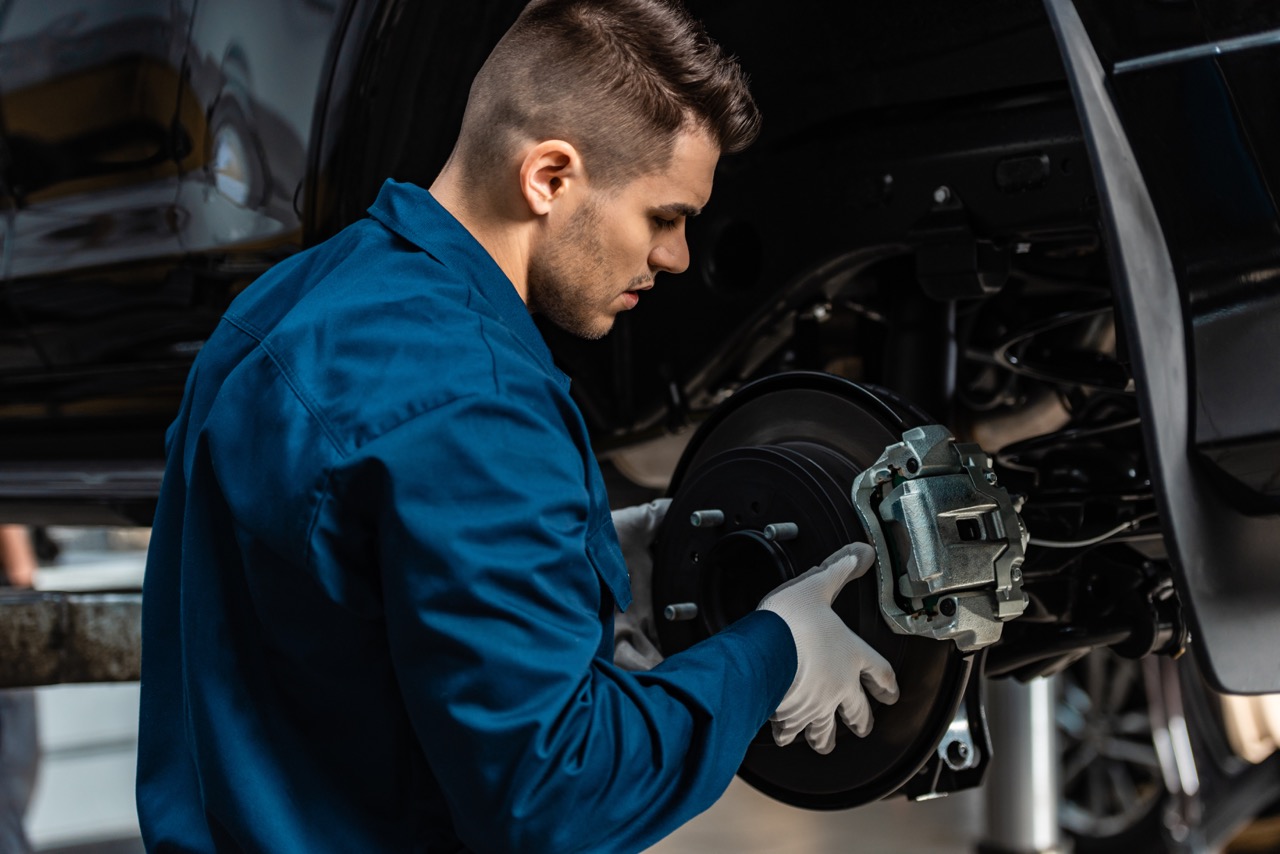
We all know that the brakes are one of the most important safety features of a car. But did you know that there are different types of brakes, and each type has its own advantages and disadvantages? In this blog post, we’ll take a look at the different types of brakes and what every driver should know about them. So whether you’re a new driver or an experienced one, read on to find out more about your car’s brakes.
The Types of Brakes in Modern Vehicles
Modern vehicles come with a variety of brake systems that allow them to be used in different conditions. Disc brakes are the most common type, featuring a clamping action that helps bring a car to a stop quickly and efficiently.
Drum brakes are another option, commonly found on trucks and SUVs; this type uses friction between a rotating surface and stationary pads to reduce speed. Some vehicles may even have anti-lock brakes which use sensors to detect when the wheels start skidding due to too much pressure being applied, helping prevent emergencies on slick surfaces. No matter which braking system your vehicle features, understanding how it works can provide an extra layer of safety when you’re out on the road.
Maintaining Your Brakes
Brake repair and replacement is essential to maintaining the safety of your vehicle and is dependent on a few different factors. Depending on the type of vehicle you drive, brakes should be replaced anywhere between 20,000 to 70,000 miles. Most commonly, it’s recommended that brake pads be replaced every 25,000 miles for most passenger cars.
Did you know the type of driving and conditions under which someone drives can also affect the frequency at which brake pads need to be replaced? Driving in mountainous or hilly areas with frequent stops requires more frequent brake maintenance than those who primarily drive on flat surfaces with no incline or decline.
Similarly, when frequently carrying heavy loads, like driving for commercial purposes or towing a trailer, brakes require service on a more regular basis as heavier stress is placed on them. Ultimately, it’s important to get into a habit of checking your brakes regularly and being aware of any potential symptoms that may occur it ensure a safe driving experience.
Choosing Between DIY and Seeing the Pros
If you want to replace the brakes or carry out brake repair yourself, it is something that can be done. However, it requires a wide variety of tools and typically takes a fairly decent amount of time. In addition, some brands of vehicles may require specialized tools that you may not have access to. Because of this, for most people, it is probably better to go to a professional in order to ensure the brakes or brake pads are installed correctly and safely. Our team of professional mechanics at Master AutoTech also has access to all the necessary parts so a replacement can be much quicker than if you do it on your own.
Signs You May Need Brake Repair
Brakes are one of the most important components of any vehicle, so it’s crucial for drivers to be aware of their condition. If you’re noticing any strange noises coming from the tires when braking, this could be an indicator that something’s amiss.
Uneven brake pads or a spongy pedal is another telltale sign that brakes are in trouble – your brakes should feel solid and responsive when pressed down. It’s also worth keeping an eye on your car’s brake fluid and checking for leaks; low levels of fluid can mean that there’s a leak somewhere, which may lead to diminished stopping power.
Getting your brakes checked by a professional is the best way to determine if they need replacement or simply require a repair job.
It can be frustrating to pay for minor brake repairs regularly, but it is one way to avoid more costly or severe auto repairs in the future. Plus, caring for your vehicle’s braking system ensures you’re safe every time you hit the road, whether for a road trip or a quick errand. If you have questions about brake repair, get in touch with Master AutoTech today.
Related Posts
Key Takeaways On average, passenger vehicle tires last 40,000 to 60,000 miles, depending on type, driving habits, and maintenance. Replace tires when tread depth reaches 2/32”, if damaged, or older than 10 years. Regular rotation, alignment, and proper inflation extend tire life. Aggressive driving, poor roads, and harsh weather shorten tire lifespan. Take advantage [...]
When you think about car maintenance, you probably focus on oil changes, tire rotations, and maybe even brake pad replacement. But what about your brake fluid? If you’ve ever wondered, “What does brake fluid do?” or “Why is brake fluid important?”, you’re not alone. Brake fluid might not be the most talked-about part of [...]
Is that high-pitched squeal from your brakes driving you—and everyone else—crazy? Don’t ignore it. Squeaky brakes aren’t just annoying, they’re your car’s way of saying something needs attention. Whether you're cruising through Salt Lake City or winding up Idaho’s mountain passes, here’s what’s likely going on, how you can fix it, and when it [...]





